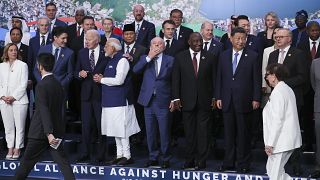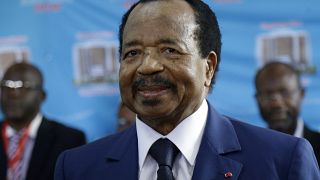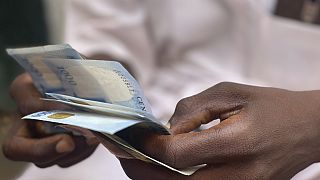Business Africa
ECOWAS: bloc under growing pressure
The Economic Community of West African States (ECOWAS) is facing a critical period with the challenges posed by the Alliance of Sahel States and economic instability in West Africa. Recent coups and economic sanctions have highlighted the organization's weaknesses, exacerbating internal divisions.
However, the election of a new president in Senegal and the dialogue initiatives by Bassirou Diomaye Faye offer prospects for renewal.
To explore whether ECOWAS can overcome these obstacles and maintain its role as an economic pillar, we interviewed international economist Magaye Gaye from the West African Development Bank (BOAD) and the African Guarantee and Economic Cooperation Fund (FAGACE).
"To stay on course, ECOWAS must develop policies for industrial complementarity, focus on energy, industry, integration complementarities, and intra-regional trade." - Magaye Gaye, international economist.
Benin-Niger: The Pipeline Standoff
Since May 6, Benin and Niger have been in crisis due to Beninese President Patrice Talon's decision to block the loading of Nigerien crude oil in Beninese waters, citing informal practices and protesting against Niger's closure of their common border.
This situation has been exacerbated by accusations of blackmail from Nigerien Prime Minister and the involvement of China, which built a pipeline for Nigerien oil exports.
Surprisingly, Benin lifted the embargo on May 15 after fruitful negotiations with a Chinese delegation, although the reopening of the Nigerien land border remains uncertain.
More details on this economic and diplomatic crisis are provided by Romual Vissoh for Business Africa.
Energy Emergency: Cameroon launches its powerful Nachtigal Dam
The city of Douala, Cameroon, suffers from frequent power outages, severely disrupting activities. To address this crisis, the government urgently launched the Nachtigal dam, built in partnership with the French firm EDF, which is expected to provide 420 MW by December.
Currently, 60 MW are already in service, representing nearly 30% of the energy needs of southern Cameroon.




![Morocco under Mohammed VI : A model of African progress? [Business Africa]](https://static.euronews.com/articles/stories/08/54/34/88/320x180_cmsv2_018906f0-7ad1-5154-8f8f-96db411e315a-8543488.jpg)
![Kenya: What are the consequences of the withdrawal of the finance bill? [Business Africa]](https://static.euronews.com/articles/stories/08/52/93/78/320x180_cmsv2_9514b4a4-b3b2-5c0a-a5b2-b0551c45909c-8529378.jpg)
![Coltan: at the heart of DRC-Rwanda tensions [Business Africa]](https://static.euronews.com/articles/stories/08/35/85/82/320x180_cmsv2_2dcbbe24-f78d-5e66-9945-f903edeb203d-8358582.jpg)






01:42
Niger: Conference in solidarity with the Alliance of Sahel States
00:10
Provisional results confirm victory for Senegal's ruling Pastef party
01:48
Meet one of the teams patrolling Senegal's waters to rescue migrants on small boats
01:48
Mixed feelings among Senegal's residents about election, as government claims victory
01:00
Senegal's ruling Pastef party claims victory in snap legislative electioins
01:56
Niger: Thousands march in Niamey to denounce “destabilization plots”